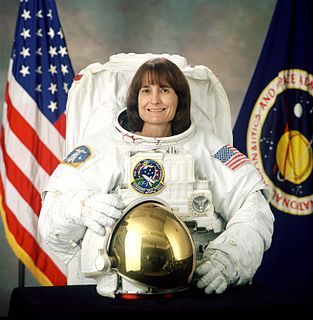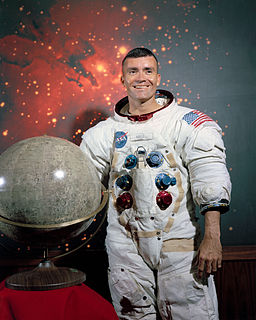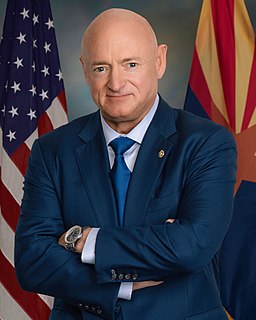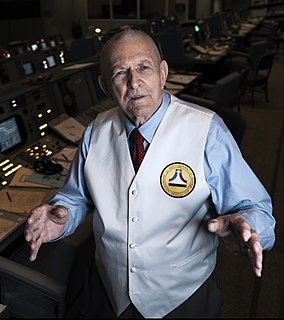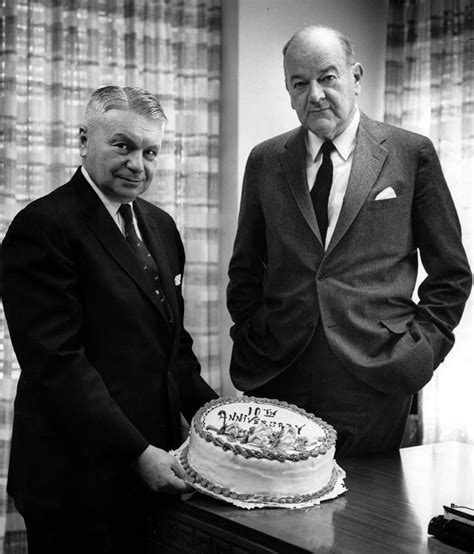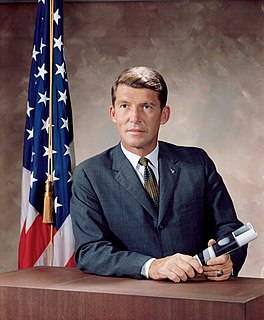A Quote by Linda M. Godwin
I grew up watching a lot of the coverage of the early U.S. space program, all the way back starting with Mercury and then through Gemini and Apollo and of course going to the moon as the main part of the Apollo program.
Related Quotes
As a youngster, I read of Buck Rogers and Flash Gordon. As a student, I wrote English reports on science fiction. And as a fighter pilot, I observed the selection of the Mercury astronauts. All this was fascinating, but I really didn't think I would ever be a part of it. It was only when my good friend Ed White was selected as a Gemini astronaut that I decided to join NASA as part of the Apollo program.
I grew up on the south side of Chicago in the 1960s, and I think there was a synchronicity of events that inspired me to be an astronaut, and, of course, the backdrop is nothing less than Mercury, Gemini, and Apollo. That was a time in our nation where we aspired to great things, and we achieved them.
I was an eight-year-old kid when I watched the first Apollo Moon Landing way back in 1969 and there was something about that moment that really stuck in my head. I'd always been interested in space and flying and I was building model rockets and model airplanes, but something about that moment, I can remember like it was yesterday watching the Apollo Lunar Lander approach the surface of the Moon and then later watching Neil Armstrong and Buzz Aldrin take the first steps on the Moon, and something that day started the dream for me that, hey, I want to be like those guys.
In less than 70 hours, three astronauts will be launched on the flight of Apollo 8 from the Cape Kennedy Space Center on a research journey to circle the moon. This will involve known risks of great magnitude and probable risks which have not been foreseen. Apollo 8 has 5,600,000 parts and 1.5 million systems, subsystems and assemblies. With 99.9 percent reliability, we could expect 5,600 defects. Hence the striving for perfection and the use of redundancy which characterize the Apollo program.
For me, the passion of being an astronaut was ignited at an early age. I have this recollection of looking at a picture of the Apollo program - Neil Armstrong standing on the Moon - then looking at the night sky and realizing that, right where I was looking, people stood and looked back at the Earth. Even as a fairly young child, that was not lost on me, and it inspired me to pursue my dream. I didn't know if I would ever become an astronaut, of course, and the odds are not in your favour, but I just kept it in the back of my mind and tried to keep those options open.
I think the only way that the U.S. human spaceflight program is going to get really revitalized, really put sort of an Apollo level push on it, is if some other country, perhaps China, were to actually have a landed flight to the moon and brought back our American flag and put it in Tiananmen Square.
Of course, I was completely enthralled by the space program as a kid - particularly Apollo 11 - and was glued to the television like most of the world. Then I stopped thinking about it too much. I was a little disappointed that they weren't going on to Mars at the time, but I didn't think much of it. I was more interested in becoming a director at that point in my life and falling in love, things like that.
